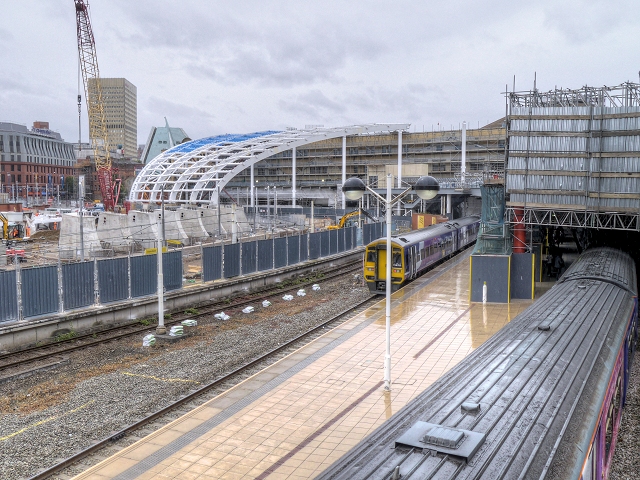
The railway stations in Britain with the highest rates of train cancellations in 2023 have been unveiled. As of July 31st, Huddersfield has witnessed the highest cancellation rate, with over
5,500 scheduled trains canceled, reaching a staggering 13%.
An analysis by the BBC of National Rail data, compiled by On Time Trains, reveals that nearly half of all trains across the country were delayed by at least one minute.
The government has emphasized the need for operators to provide punctual services and address the issues of delays and cancellations.
Among the 100 busiest railway stations, Manchester Victoria recorded the second-highest cancellation rate at 10%, followed by York, Newcastle, and Manchester Oxford Road, all with rates at 9%.
Caroline Devonport, a regular train traveler from South Kirkby, expressed her frustration, stating, "The last six months have been absolutely horrendous. Due to the risk of delays, I now leave for work an hour early. I'm constantly exhausted from spending so much time on trains. I've witnessed a lot of passenger aggression towards train staff because of lateness and frustration. The strikes play a role, but the train companies themselves are poorly managed, and their customer service can be very rude."
TransPennine Express (TPE), responsible for managing Huddersfield, was taken under government control in May following months of complaints regarding delays and cancellations. Prior to this takeover, it had the highest cancellation rate among all train operators, according to data from the Office of Rail and Road.
Chris Jackson, interim TPE managing director, reported improvements in performance since government control, citing a reduction in cancellations at Huddersfield to 3.5% and an overall rate of 5.5% for the entire TPE network. He added, "We acknowledge there is more work to be done, and we are actively working on plans to provide the reliable, punctual, and robust railway our customers expect and deserve."
The analysis of data from 2,555 stations between January 1st and July 31st reveals the following:
-A total of 3% of trains in Great Britain were canceled, with 56% running on time and 41% experiencing delays of at least one minute.
-Stations in Wales had the highest cancellation rate at 7%.
-The North East had the highest cancellation rate among English regions, at 6%.
- Yorkshire and the Humber had the lowest percentage of trains running on time, at 42%.
Paul Tuohy, CEO of the Campaign for Better Transport, commented, "We want people to choose train travel, so high cancellation rates are unacceptable. The government and the rail industry must address this issue to ensure that services adhere to schedules, allowing passengers to travel with confidence."
Christine Wise, a commuter from Stalybridge, lamented the unreliability of her local train for her new job in Manchester. "At least one train every morning is canceled," she revealed. She has resorted to driving to Ashton-under-Lyne to catch a tram, which takes longer and results in lost time. She added, "Over my lifetime, trains have never really run on time, but there weren't as many delays and cancellations as there are now. It's markedly worse." Photo by David Dixon, Wikimedia commons.



































